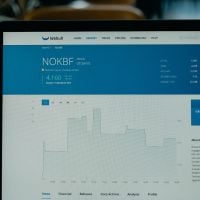Deadline: 24-Jan-23
The European Commission (EC) has announced the proposals for Sustainable and resource-efficient solutions for an open, accessible, inclusive, resilient, and low-emission cultural heritage: prevention, monitoring, management, maintenance, and renovation.
Scope
The proposal should:
- Deliver technically and socially innovative, sustainable, energy and resource-efficient solutions for the cost-effective improvement and preservation of cultural heritage built environment along all relevant aspects: inclusiveness, accessibility, resilience, environmental and energy performance.
- Ensure the proposed solutions cover all relevant aspects of the heritage built environment’s life cycle: design, renovation works, operation, monitoring and management, and maintenance.
- Ensure the proposed solutions allow to maintain the heritage value (e.g. artistic, historic, archaeological, social and scientific) of targeted sites, while improving access and comfort of users and visitors, and reducing maintenance and operational costs.
- Ensure, where relevant, that the proposed solutions rely on (adapted) historical or traditional construction techniques and materials for sustainable restoration.
- Ensure the proposed solutions include natural low maintenance as well as advanced renovation techniques for high quality design and construction, including new digital technologies, while preserving the cultural value of the targeted sites.
- Ensure the proposed solutions contribute to facilitate the integration renewable energy sources while respecting the aesthetic and cultural identity of the targeted buildings.
- Ensure the proposed solutions contribute to the cost-effective improvement of the energy performance, also reducing the cost of the interventions compared to traditional methods.
- Ensure the involvement of relevant stakeholder groups (e.g. civil society organisations, associations, cultural heritage stakeholders such as cultural heritage protection bodies) and citizens’ acceptance thanks to co-creation processes and socially innovative ideas.
- Deliver and demonstrate decision-support tools for low-disruptive, optimal renovation of heritage built environment to enhance sustainability.
- Clustering and cooperation with other relevant projects is strongly encouraged; e.g. with the Horizon Europe Partnership on ‘Driving urban transitions’.
- This topic requires the effective contribution of SSH disciplines and the involvement of SSH experts, institutions as well as the inclusion of relevant SSH expertise, in order to produce meaningful and significant effects enhancing the societal impact of the related research activities.
- This topic should consider social innovation as driver of social change, new social practices, social ownership and/or market uptake.
Funding Information
The check will normally be done for the coordinator if the requested grant amount is equal to or greater than EUR 500 000, except for:
- public bodies (entities established as a public body under national law, including local, regional or national authorities) or international organisations; and
- cases where the individual requested grant amount is not more than EUR 60 000 (lowvalue grant).
Expected Outcomes
Project results are expected to contribute to all of the following expected outcomes:
- Increased availability and enhanced overall performance, including with regard to cost-effectiveness, of solutions applicable to the reliable and respectful historical renovation of heritage buildings, preserving their architectural and cultural identity.
- Demonstrated potential of sustainable, energy and resource-efficient historical renovation of heritage buildings.
- Better protection of the value and long-term inclusiveness, accessibility and usability of cultural heritage sites.
- More cost-effective and less disruptive modernisation and preservation of the heritage built environment.
- Enhanced prevention and monitoring of the heritage built environment.
- More important role of the cultural heritage in deployment, showcasing and replication of solutions for a sustainable built environment.
Eligibility Criteria
To be eligible for funding, applicants must be established in one of the eligible countries, i.e.:
- the Member States of the European Union, including their outermost regions;
- the Overseas Countries and Territories (OCTs) linked to the Member States;
- eligible non-EU countries:
- countries associated to Horizon Europe;
- low- and middle-income countries.
For more information, visit European Commission.
For more information, visit https://bit.ly/3KTuQ9G









































